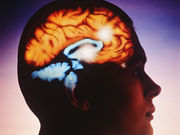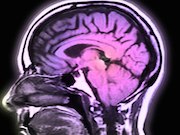Tag: Depression
ECT Effective for Treatment-Resistant Depression
Third-line electroconvulsive therapy also cost-effective in base case, and in a range of sensitivity analyses
Resistance Exercise May Reduce Depressive Symptoms in Adults
Meta-analysis shows reduction in depressive symptoms with RET, with considerable heterogeneity
Depressive Symptoms Tied to Memory, Aging of the Brain
However, baseline depressive symptoms not tied to cognitive changes over five years
Grip Strength Indicative of Cognition in Major Depression
Positive association with performance on cognitive tasks for those with depression, bipolar disorder
Increased Prevalence of Depression, Anxiety After CRC
Older age, being male linked to less anxiety, more depression; less anxiety, depression with marriage
Depressive Symptoms Tied to Diabetes Self-Management
Weaker effects of social, emotional support seen in self-efficacy of diabetes management
Stopping Exercise Found to Increase Depressive Symptoms
Findings particularly in women; depressive symptoms associated with decreased CRP and IL-6
Childhood Irritability, Depressive Mood Linked to Suicidality Later
Increased suicidality in adolescence for children with high irritability, depressive/anxious mood
Relapse in Major Depression Linked to Brain Cortical Changes
Significant decline of insular volume and dorsolateral prefrontal from baseline to follow-up
Neural Markers of Depression Resilience ID’d in Female Teens
Resilient adolescent females have greater connectivity within frontal and limbic networks














